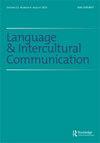Freedom of expression and information within the right to communicate according to Albanian legislation
IF 2.2
1区 文学
0 LANGUAGE & LINGUISTICS
引用次数: 0
Abstract
Throughout history, mankind has been inclined to use an increasingly advanced technology to enhance communication skills between them. Communication already represents a need as essential as it is considered one of the fundamental human rights. This right of communication today translates, among others, as the right to freedom of expression, as well as the right to information. These rights are provided in the highest acts such as the Universal Declaration of Human Rights, the European Convention on Human Rights, the Constitution of the Republic of Albania as well as other laws or bylaws issued on the basis and implementation of the Constitution. The human right to express oneself, to be informed and at the same time to preserve privacy, is developing along with the great boom that has taken place in the development of communication technology, in an increasingly connected world, so much so that to look like a global village, where information spreads very quickly. The evolution that has taken place with the development of information technology and related digital communications in recent years has changed the communication practices around the world. But in addition to this, the legislation that regulates this field has undergone constant changes, due to the fact of direct implication for human rights.阿尔巴尼亚立法规定的通讯权利范围内的言论和信息自由
纵观历史,人类一直倾向于使用越来越先进的技术来提高他们之间的沟通技巧。通信已经是一种必要的需要,因为它被认为是一项基本人权。今天,除其他外,这种传播权被翻译为言论自由权和信息权。这些权利载于《世界人权宣言》、《欧洲人权公约》、《阿尔巴尼亚共和国宪法》以及根据和执行《宪法》颁布的其他法律或细则等最高法律。表达自己、获得信息、同时保护隐私的人权,正在随着通信技术发展的巨大繁荣而发展,在一个日益联系的世界里,如此之多,以至于看起来像一个地球村,信息传播得非常快。近年来随着信息技术和相关数字通信的发展而发生的演变改变了世界各地的通信实践。但除此之外,由于对人权的直接影响,规范这一领域的立法也在不断变化。
本文章由计算机程序翻译,如有差异,请以英文原文为准。
求助全文
约1分钟内获得全文
求助全文
来源期刊

Language and Intercultural Communication
Multiple-
CiteScore
3.00
自引率
47.40%
发文量
50
期刊介绍:
Language & Intercultural Communication promotes an interdisciplinary understanding of the interplay between language and intercultural communication. It therefore welcomes research into intercultural communication, particularly where it explores the importance of linguistic aspects; and research into language, especially the learning of foreign languages, where it explores the importance of intercultural perspectives. The journal is alert to the implications for education, especially higher education, and for language learning and teaching. It is also receptive to research on the frontiers between languages and cultures, and on the implications of linguistic and intercultural issues for the world of work.
 求助内容:
求助内容: 应助结果提醒方式:
应助结果提醒方式:


